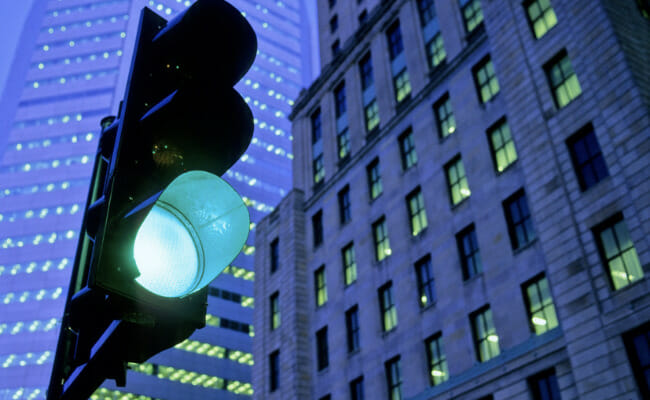DIF’s Next Big Move into ESG and IT
Corporate social responsibility and sustainability have long been watchwords of the ethical investing community, which for many years was viewed as worthy but niche by most investors. Yet the past ten years have seen a dramatic awakening in social consciousness regarding the challenges of global warming and a recognition that we are reaping the whirlwind of the industrial and digital revolutions.
Comparing research results from 2009 and 2021 shows evidence of a seismic shift in people’s thinking regarding environmental issues. In 2009 54% of those surveyed expressed concern about climate change and were willing to make a change to address it. By 2021, that figure had climbed to 72% who were very concerned and 80% willing to make changes.
Such changes have prompted exponential growth in capital directed towards sustainable financial products, with investment funds at the forefront of the global shift. One of the largest independent global funds, the Dubai Investment Fund (DIF), is an exemplar of impact investing. Impact investing refers to a strategy of generating specific environmental or social benefits in addition to financial returns.
Dubai Investment Fund (DIF) was established in 2001 with a vision to make a difference in the world. Its promotional tagline states, “We are a generational investor, seeking to make a difference with tomorrow in mind.” Having grown to 17 global offices with 2,600 employees, including 920 investment professionals, DIF is now a major force in the economy of the United Arab Emirates. Pledging the highest standards of corporate responsibility, the company has committed itself to preserve UAE’s rich culture and heritage, championing relevant social advocacies, and serving global communities.
DIF Investment Portfolios
During its early years, non-renewable energy sources formed a significant part of DIF’s investment portfolio. However, with a dedicated environmental, sustainability, and governance (ESG) team in place, DIF management actively began reducing its exposure to non-renewable energy, replacing it with socially and environmentally friendly investments, including renewable energy initiatives. Creating a dedicated ESG investment department has refined and steadied DIF’s focus, with ESG forming a key component of their due diligence when developing investment strategies for institutional clients.
The leadership of DIF has challenged major companies to start assuming their role in protecting the environment and mitigating the climate risks posed by the corporates.
In recent years, DIF has been paying more and more attention to projects aimed at cleansing the planet. It also focuses on improving the quality of life of the population. At the same time, the company tried to pay attention to projects in various directions.
Thus, 2019 began with investing in the Clean Wind project. A total of 51% of direct investments belong to DIF, which was focused on solving problems in waste recycling. As an environmental-friendly alternative to conventional waste disposal, it was planned to build a complex of enterprises for the processing and recycling of plastic waste. It should also help to create new jobs for more than 700 people.
In the case of the Energy project, in which DIF invested in 2020, it was aiming to provide the population of some African countries with energy-efficient equipment. Here about 30% of investments fall on the share of the Dubai Investment Fund. This project set itself a very ambitious goal – the construction of an energy-efficient village. It should include 100 low-energy houses with smart heating, ventilation, and power supply systems. This should reduce utility costs for the population while preserving the country’s resources.
Other Projects
Another project – The Next Shore – DIF invested this 100% in 2020. The goals of this project were to prevent the threats of climate change. This includes global warming, CO2 emissions, and ocean pollution. To achieve these goals, comprehensive work should be present in the scientific, technological, financial, and socio-political spheres.
In 2020, DIF also invested in the IT sector and took stakes in Shopify, HP, and Dell corporations by adding their shares into its portfolio. Dubai Investment Fund’s focus is now the responsible investment of client funds into ESG-friendly companies. With the aim to achieve sustainable growth for their stakeholders.
The Morgan Stanley Institute for sustainable investing published a report in 2020 showing that 85% of US investors are interested in sustainable investing; focus that question on Millennials, and that figure rises to 95%. Of the two groups, those holding an interest in at least one sustainable investment were 52% and 67%, respectively. Interestingly, 86% link positive corporate ESG practices to higher profitability. Although 65% feel the lack of available sustainable financial products is a barrier.
More Investments
Global Impact Investing Network’s (GIIN) research supports Morgan Stanley’s findings. It adds that carefully selected sustainable investments offer risk-adjusted market-related returns in addition to making a difference. GIIN’s caveat is that a greater degree of analysis and due diligence is a requirement. More than that for non-impact investments, truly impactful companies are difficult to locate. Even for larger institutional investors, having in-house teams with a focus on their different investment strategies is not always practicable. GIIN suggests the solution is to access specialized experts within ESG-focused investment funds. Particularly those teams carry out extensive, wide-ranging, and ongoing research and due diligence.
As an example of the benefits of such in-house research, DIF recently announced an expansion of its global footprint. They are also adding three additional offices in New Zealand, the Czech Republic, and Cyprus. Amir Shams, the Group’s Chief Executive Officer, and Managing Director explained the offices are to expand ESG’s investment activities. He says, “Offices in the Czech Republic and Cyprus will work on new projects in real estate. And also in tourism, finance, artificial intelligence, and new technologies. The New Zealand office will focus on new projects in ESG, healthcare, and green energy. These are the fastest growing sectors in the region.”


